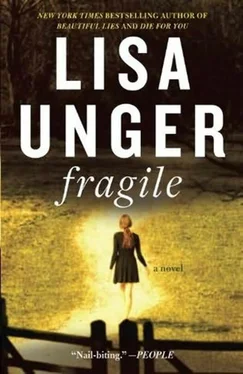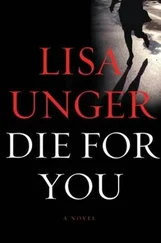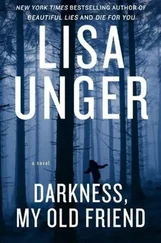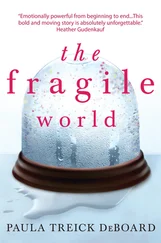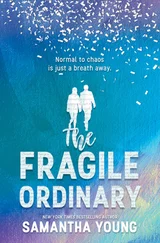Where do you think you’ll go? her mother wanted to know. You think you’ll survive on minimum wage in New York City? Because without an education you’ll be working at McDonald’s . But Charlene had an escape plan; it was already under way.
You can always stay here with me, Charlene, when you’re ready . He’d promised her this the last time she’d seen him. You can stay as long as you want .
She was smiling to herself when she heard the slow rise of voices downstairs. She stopped what she was doing, poised the tiny, glistening green brush over her big toe and listened. Sometimes she could tell by the early decibels and pitch whether there would be a quick explosion of sound that ended with a slamming door and the angry rev of an engine, or whether it was going to be a slow movement, picking up speed and volume, moving from room to room until it reached a crescendo and someone got hurt. Might be her mother, might be her stepfather, Graham-might even be Charlene if she chose to get involved. Which she wouldn’t today; after the last time, she’d promised herself never again. She’d had to cake makeup and black eyeliner over her eye for a week. She’d let them kill each other first. And it sounded like a bad one.
She couldn’t make out the words, just that near hysterical pitch to her mother’s voice. Charlene reached for her iPod, tucked the buds in her ears, and turned up the volume. The Killers.
She tried to sing along, to reach a place of blissful indifference. But her heart was thumping, and she could feel that dry suck at the base of her throat. She finished painting her nails with a hand that had started to tremble a little, then capped the bottle and put it down hard on the bedside table. She hated the mutinous actions of her body. Her mind was tough, not afraid of anything. But her body was a little girl shaking in the dark.
Charlene reached over and paused the music, listened to the air around her. She exhaled. Silence. For a moment, she was almost relieved. But the silence didn’t sound quite right. It wasn’t empty, void of energy. It was alive, hiding something. She got up from her bed, walked with her toes flexed and separated, mindful of the slime green polish. She listened at the cheap, thin door with its flaking gold knob. Nothing. Not even the television, which her mother had on perpetually -morning shows, game shows, on to soap operas, then the afternoon talk shows-Oprah, Dr. Phil. How could the woman even hear herself think?
Charlene found herself feeling the door, like they teach you to do if there’s fire. If the door is hot, don’t open it-they drill this stuff into you. Stop, drop, and roll. Endlessly, your entire school career, they sent you out single file with bells ringing. But the petty suburban abuses, a terrible marriage polluting the air you breathe, a stepfather’s inappropriate glances and crude offhand remarks making you feel small and dirty, a selfish, silly mother who couldn’t seem to decide between the roles of harsh disciplinarian and best girlfriend, leaving you wary and confused. Nobody tells you what to do about those things. Nobody rescues you with a big red truck, sirens blaring. You’re supposed to live with it. But it hurts, damages, like a toxin in the water you can’t smell or taste. It’s only later that its pathology takes hold. You wind up on some shrink’s couch for the rest of your life.
She was thinking this as she pushed the door open and walked down the hall toward the unfamiliar silence, wet nails forgotten now, leaving a smudge of green on the carpet with each step. At the top of the stairs, she stopped.
“Mom?” she called. There was no answer, but she heard something now. Something soft and shuddering, irregular in pitch and rhythm. Weeping. Someone was weeping. She moved slowly down the stairs.
“Mom?”
Marshall Crosby was sinking into depression again. Maggie could clearly see that. All the physical cues were there. His hair hung limp and unwashed over his thick glasses. It was one of the first things she’d noticed about him when he began his sessions with her, that he rarely bothered to brush the hair from his eyes. Instead he peered out from beneath it with a variety of expressions-disdain, defiance, shyness, or, like today, a kind of morose sadness. Something invested in itself. His bony shoulders slouched inside a threadbare navy hooded jacket; his knees were spread wide, hands dug deep into the pockets of his jeans. He had the purple shiners of fatigue under each eye.
“So how’s it going today, Marshall?” Maggie said. She sat in the leather chair across from the couch where he sat. She smoothed out her skirt and laid her notebook on her lap.
“Good, I guess.”
“You seem tired.”
“Yeah. I guess.”
“Up late with something? Or having trouble sleeping?”
A shrug. He turned to glance out the window as if he were expecting someone, then leaned back again.
“It matters,” she said, trying to catch his eyes. But he stared now at the low coffee table between them. “We might need to alter your meds if you’re having trouble falling or staying asleep.”
“I was up late.” Was there the slightest edge of impatience to his voice?
“Studying?” she said.
Marshall gave Maggie a sneer. “Studying is for pussies.”
“Who told you that?” As if she had to ask. She knew Marshall’s father well enough.
Marshall offered another shrug. She examined him for a moment, then let her eyes drop to the notebook on her lap. On the pad, she saw that she’d scribbled “Slipping away.” She didn’t remember writing it, but that was exactly how she felt about him.
Years ago, a frustrated teacher had pegged Marshall as learning disabled, and the label had followed him through grammar school, on into middle school and high school. For years, bored, miserable, abused at home, bullied at school, he’d floundered. Until Henry Ivy, Marshall’s history teacher and the school counselor, recognized what everyone else had missed. Marshall was an abused boy presenting as slow. Henry offered Marshall a hand-some tutoring, some amateur counseling. Recent aptitude tests had revealed, to everyone’s amazement, that Marshall possessed a near genius-level IQ.
Marshall’s father, coincidentally, was arrested around the same time for a DUI offense. So Marshall had been living with his aunt Leila, uncle Mark, and two older male cousins, Tim and Ryan. Leila took Mr. Ivy’s advice and brought Marshall to Maggie for evaluation and counseling. They’d all worked together to get him on track. The improvement had been nothing short of miraculous. Until six weeks ago, when Marshall’s father was released.
“So how is it living with your father again?”
“It’s okay, I guess. He’s not much of a cook.”
Marshall was given the choice to stay with Leila and Mark Lane; but he chose to return to his father. He’d been back at home just about three weeks, and now his grades were dropping, hygiene failing, blank expression returning. Maggie suspected that it was only a matter of time before Marshall went off his meds and started missing appointments. It made her angry, yes, but mostly it made her feel sad and powerless. After seeing Marshall last week, she’d been so overcome by those feelings that she’d called her own therapist.
“Therapy only works when the patient is a willing participant,” said Dr. Willough. “That’s true with adults and adolescents alike. The patient has to want help. And we have to recognize our limitations. Our boundaries.”
Abused kids almost always wanted to go home. Sometimes you could stop it, sometimes you couldn’t. Marshall’s father was a cop. He was without a job after his arrest, of course, but not without friends. The judge who’d allowed Marshall to go home was Travis’s longtime drinking buddy. Sitting in the courtroom, Leila, Travis’s sister, had cried in Maggie’s arms. We’ve lost him , she’d whispered. Maggie had hoped she was wrong. She still remembered the nasty sneer Travis had tossed back at them as he left with Marshall.
Читать дальше
